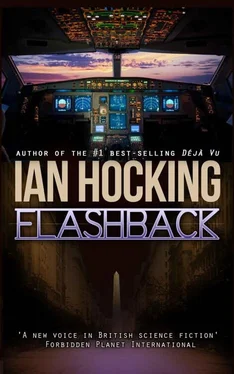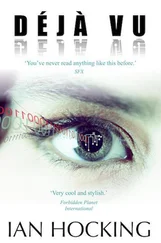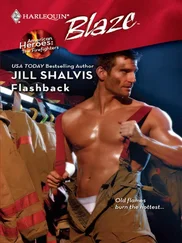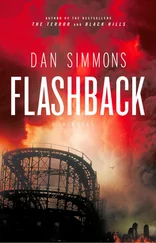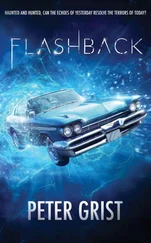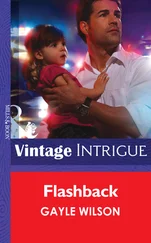Acknowledgements for the First Edition
As you can see from the dates above, it’s taken me five years to write this book. Flashback would have been published in 2007 if my plans went to plan. Of course, they didn’t. The mice got at them.
I’d like to thank a few people whose help made the book possible. Steve Fitzsimmons generously helped me research the interior of the Avro Lancastrian. Ed Waters of Plane-Design.com answered my many queries about the Lancastrian’s cockpit layout and managed to dig up the RAF flight manual for the Lancaster Bomber. Other pilots and aeronautical experts—including my friend Daniel Graaskov—helped on further technical points. Thanks also to Roderick Murray-Smith, Professor of Computing Science and member of the Brain-Computer Interaction group at Glasgow University.
Ah, my fearless beta readers: Neil Ayres, @by_tor, @Chobr, Sharon Coen, Isabel Ewart, Ana Fernández, Debra Hamel, Alex Mears, Nadège, Dennis Nigbur, Paul Roberts, and Aliya Whiteley. I sweat like Tom Jones to think of the rubbish I gave you all to read. You have my solemn promise that I will not do this again. For at least a month.
Jay Rayner’s book Star Dust Falling was an invaluable guide to the circumstances surrounding the crash of BSAA flight CS-59.
I refer to several poems in this book, sometimes explicitly, but sometimes not. (I’m using the term ‘refer’ in the sense that Elgin intended when he ‘referred’ a collection of classical Greek marble sculptures to the British Museum.) These poems include Because I could not stop for Death , by Emily Dickinson, Ballad of the Ladies of Times Past , by Francois Villon, and Richard Cory , by Edwin Arlington Robinson.
Pia Guerra very kindly allowed me to include her illustration of Saskia Brandt at the beginning of the book.
My partner, Britta, has been supportive in the countless ways that only she can be.
The author, May 2011; Canterbury, UK
An excerpt from my blog, 30th December, 2005. Read the original.
One of Stephen King’s classic novels, The Stand, took me about six months to read. It’s a tale about post-apocalyptic America, where the survivors of a devastating plague form two antagonistic groups for a final battle between good and evil. The book is staggeringly long. Really, really long. Length is, I would guess, one of those things first-time authors find most daunting about writing a novel. In his preface to second—uncut—edition, King replied to fans who asked him how he could write such long novels. ‘One word at a time, man,’ he wrote. ‘The Great Wall of China was built one brick at a time and you can see that fucker from the moon.’
Though I’m past the point where I’m daunted by the blank pages ahead of me, I admit to feeling relief when I pass a particular word count. The fact is that, if you’ve managed to write half a book, there’s a good chance that your choice of characterisation, situation and theme have worked out. I write without a synopsis, so I never really know whether the story is going to ‘work’. On the other hand, because I make it up as I go along, I’m closer in my perspective to that of a reader; like the reader, I’m experiencing the story for the first time, and it makes decisions about pacing, toning, and overall story arc more straightforward. I’m not forced to write duff set-up scenes. I write the scenes I think will be fun and, in the second draft, I cut the ones I don’t need.
This morning, I passed the 50,000 word mark on my new science fiction novel, a sequel to Déjà Vu. According to my excellent novel-management software Copywright, I began the manuscript on November 3rd, 2005. I’ve spent 290 hours writing it. All just numbers, of course. Is there something special about the figure 50,000?
For those of you more used to page counts than word counts, 50,000 words is, roughly, just over half the length of the average novel (as a rule of thumb, Terry Pratchett regularly comes in under 100,000 words, Stephen King regularly over). I can now regard the half-written novel as reasonably successful. Though I do not yet have an ending, I’m well into the second of three acts, and the narrative has its own energy—in other words, the characters are driving the story through their own motivations. This is something that a creative writing teacher will tell you explicitly: character-driven stories are generally more effective than plot driven stories. Where the finale of a story is considered by the reader to be the inexorable conclusion given the prerequisites of character and situation at the start of the novel, you know you’ve got a tight story. Whether or not it’s a good story…that’s another matter, and will depend on readers’ individual reactions to characters.
What else goes through a novelist’s mind at this stage? Somewhat surprisingly, I’m thinking a lot about the title. I write ‘surprisingly’ because, in one sense, the title is tiny proportion of the overall work that a writer has to plough through per book. But the title is also bound up with something crucial about the novel: its identity. It will become the name of the project, and if it’s a good name, it can even be inspiring. The genre of my current project is ‘thriller’ (sub-grenre: technothriller)—though I consider it to be science fiction (I’ll hold these thoughts about genre for another post).
Here are some of the titles I’ve come up with: The Magic Bullet, Keystone, Black Box, Game Over, Femme Fatale (God, that one’s awful), The Rosetta Division, Freefall, Firebrand, Thin Air, The War of the Ghosts, Meridian, Guardian Angel, Contact Lost, The [insert word here] Trace, Final Transmission, Afterimage, Flashback, Thin Air, Black Box, Wake Vortex, and Memoriam.
Of these, my current favourite is ‘Flashback’. Not only does it have a hint of time travel about it, it also foreshadows the narrative structure of the book, and it’s nicely dramatic. It’s also the name of a brilliant old Commodore Amiga game that I spent hours playing with my mate Edward. As a point of little interest, I named a character in Déjà Vu Jobanique, following our teenage mispronunciation of Jobanque, a character who was the boss of time agent Falcon in the excellent Falcon gamebook series (note to lawyers: I only took the name! Everything else I made up.)
A good title can help motivate you when times are hard (i.e. when a scene is just plain shit, or you’re ill (as I am now)) and give you an overall feeling of what the book may look like. Having a sense of its final form can help with decisions about chapter length, pace, and tone.
One final, crucial thing is the jacket blurb. The word ‘blurb’ is used to refer to different things: sometimes snippets of review that grace the cover of your book, sometimes the hooky summary on the back (or inner flap) that entices you to buy the book. In this instance, I’m referring to the summary on the back. Terry Pratchett, no less, has claimed that he writes a jacket blurb before he begins the manuscript. This might seem a little narcissistic, but it’s a another good way of entering the world of your book. One sad fact is that, unlike Mr Pratchett, if you can’t come up with a good blurb for your book, the chances of getting your complete manuscript to an agent or publisher will drop. They don’t read manuscripts routinely; they need to be hooked.
Well, I’ve had a stab at the jacket blurb for ‘Flashback’. It does not even begin to describe the story, and needs better ‘topping’ and ‘tailing’, but it’s a start. Just posting it on this blog has forced a little rewrite, and this can only be a good thing.
A fifty-year-old mystery is about to be solved.
Читать дальше
